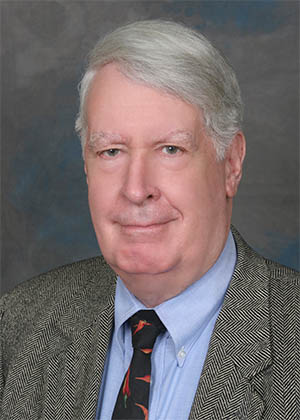When I first moved to Washington, D.C., fresh out of college in 1979, a Capitol Hill friend offered a temporary room in a great old townhouse. Another room was occupied by a somewhat quirky, funny, and absolutely brilliant writer named R.J. Smith. He became the most important and influential conservation leader you’ve never heard of.
R.J. was a struggling free-market economics writer, sharing with me and others the works of Friedrich Hayek, Milton Friedman, and Ludwig von Mises, under whom R.J. had studied at New York University in the 1960s. He was a bit older, but we were kindred spirits because of our mutual abiding interest in environmental issues. But his writing was completely alien to me, focused on what he called “free market environmentalism,” a term he coined and a movement he spawned that is not only alive and well today, but leading much of the smartest discourse in America on those issues. R.J. was writing, publishing, and speaking about the value of private sector initiatives, private ownership of natural resources, and especially privately funded environmental successes.
It is difficult to overstate how radical such unabashed capitalism seemed, to a fresh college graduate like me, and to a country reveling in the excitement of new government environmental protection programs. Congress had recently passed what we now call the cornerstones of environmental policy: Endangered Species Act, Clean Water Act, Clean Air Act, and Safe Drinking Water Act. When I arrived the ink was barely dry on the new hazardous waste law, and the National Environmental Policy Act, which spells out the procedures for government actions that might affect the environment.
Almost nobody was talking about non-governmental conservation work in that era – except R.J. Smith. He not only touted private sector success stories, but railed against the punitive approach government always takes. He wrote about incentives in a way that just seemed out of place during a time when government regulation of the environment was almost universally accepted (the above laws were all passed by Democratic Congresses and Republican Presidents).
The growing free market environmental movement, though, did not die. R.J.’s work was not completely ignored, shouted down, or cancelled, for one simple reason. There was truth in it.
In the years since, two essential concepts have become clear to me. First, government’s insistence on command, control, and punishment does not work well – fewer than two percent of endangered species have recovered and been de-listed, and vast swaths of national forests have died, fallen down, and burned. Second, incentives are the key to conservation. Even Aldo Leopold, a great hero of the environmental movement, concluded that conservation only becomes possible on private lands – where the vast majority of wildlife habitat is found – when it also becomes profitable for landowners. In 1934 he wrote that “conservation will ultimately boil down to rewarding the private landowner who conserves the public interest.”
To understand the vital importance of incentives is to understand human nature. People can always be counted on to do what is in their own best interest, and destroying their surroundings would also destroy their means of living. As R.J. explained, “Their interest in maintaining their land, the vernal pools, and the native wildflowers and grasses is not altruistic – their business and livelihood depend on it.” The late Fish and Wildlife Service Director Sam Hamilton acknowledged that, writing, “The incentives are wrong here. If a rare metal is on my property, the value of my land goes up. But if a rare bird is on my property, the value goes down.” The movement to provide landowner incentives to conserve species and habitat is led by groups like the Property and Environment Research Center in Montana, and dozens of others, all of whom view R.J. Smith as their godfather.
In more recent years, he founded and directed the research group “Center for Private Conservation,” and was a senior fellow at both the National Center for Public Policy Research and the Competitive Enterprise Institute, which honored him with its prestigious Julian Simon Award, given to an individual “whose work continues to promote the vision of man as the ultimate resource.” He was a consultant to the Interior Department and the President’s Council on Environmental Quality, a special assistant at EPA, a director of environmental studies at the Cato Institute, a regular witness at congressional hearings, and a popular speaker around the world.
R.J. Smith passed on earlier this week, but the movement he started not only lives on – it is the future of conservation policy.





{ 0 comments… add one now }